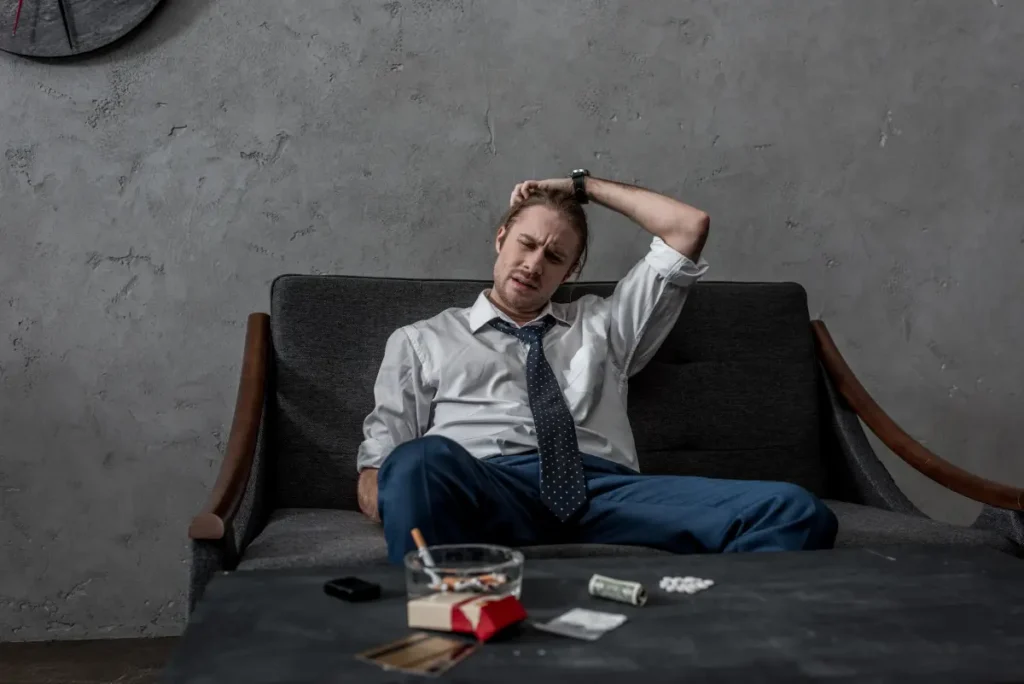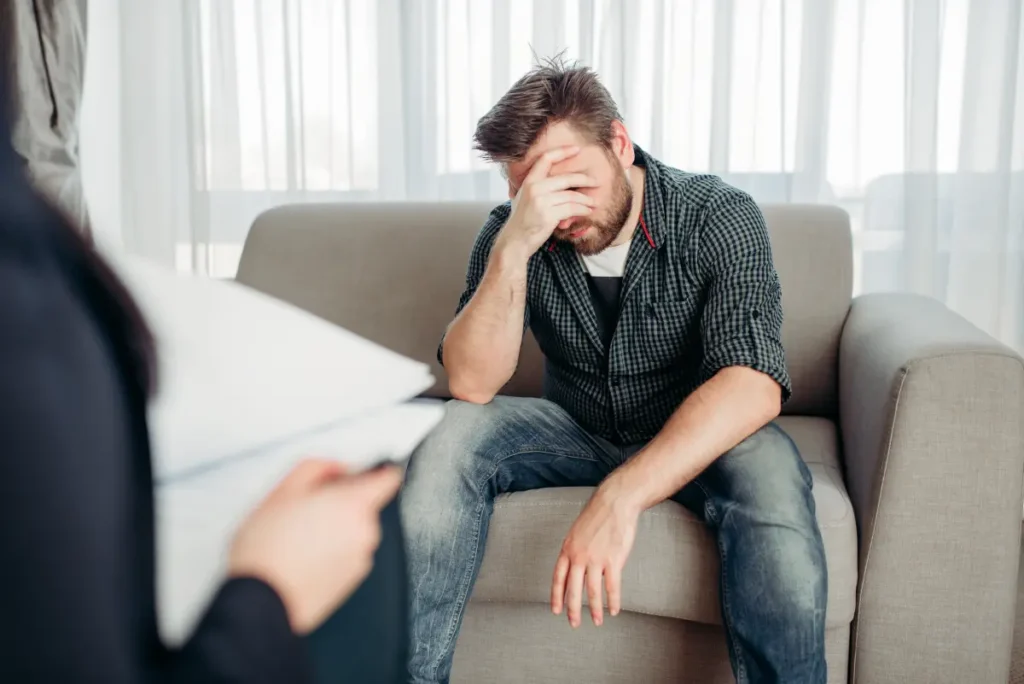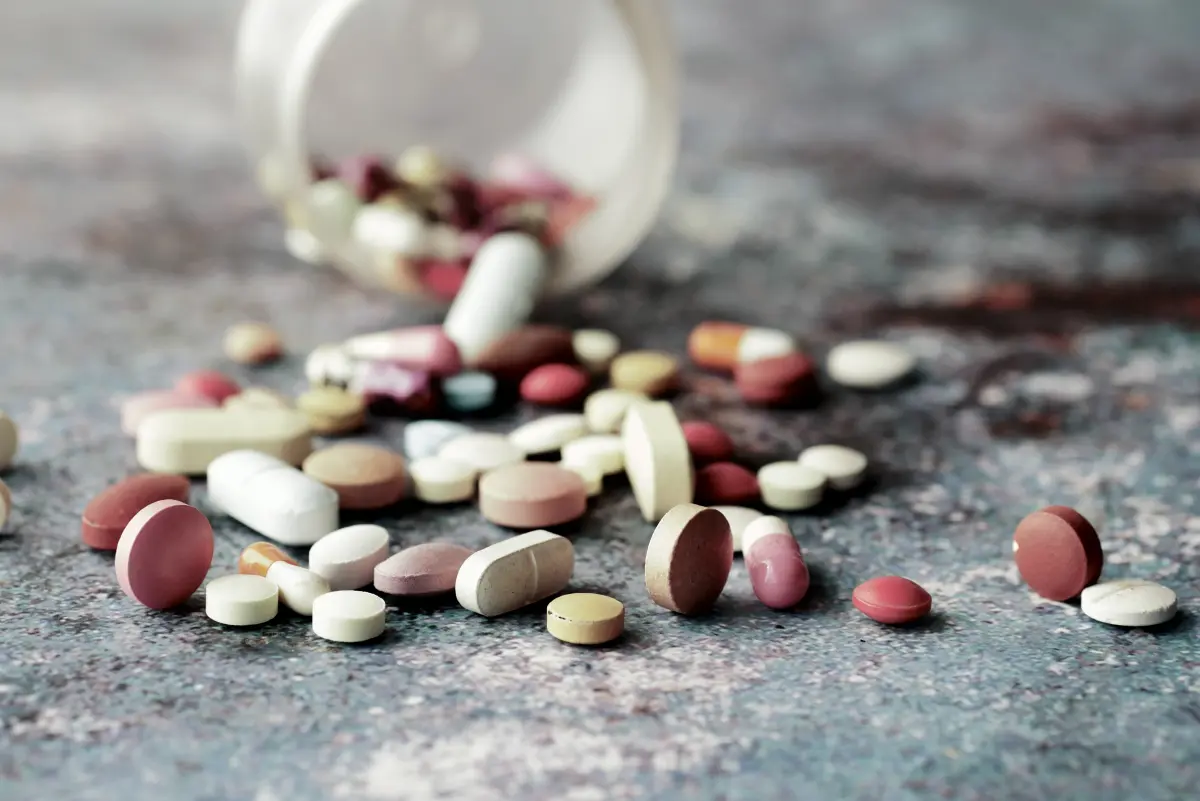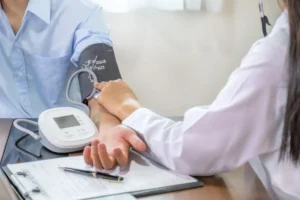We offer medical detox and multiple addiction treatment options in our
luxury treatment centres in Port Hope, Cobourg, and Ottawa.
Is Gabapentin Addictive? Guide from a Rehab Centre
Gabapentin is a prescription medication used to treat seizures, neuropathic pain, and other forms of nerve damage. It is also used off-label to treat fibromyalgia, hot flashes, anxiety, and other physical and mental health concerns. Gabapentin is not a controlled drug and is sold under the brand names Neurontin, Horizant, and Gralise. It is popular for its unique ability to tackle multiple conditions and is considered a less addictive opioid alternative. However, its euphoric and relaxing effects come with the potential for abuse and dependence.
So, is gabapentin addictive, how addictive is it, and what are the dangers associated with abusing this drug? CCFA explains how gabapentin works and how you can handle gabapentin abuse and addiction.
Key Takeaways
- Gabapentin is a medication prescribed for treating seizures, pain, and other forms of nerve damage.
- It also produces euphoric and sedating effects that make it a potential drug of abuse.
- Gabapentin abuse can lead to severe adverse physical and mental health consequences.
- It’s crucial to seek professional help for gabapentin abuse and addiction.
What is Gabapentin?
Gabapentin is a relatively new prescription drug that began to gain prominence in the early 2000s. Today, it is widely used to treat epileptic seizures and nerve-related pain. Gabapentin calms the nervous system to reduce the frequency or intensity of seizures. It also reduces the burning or stabbing pain associated with diabetes or shingles (post-herpetic neuralgia).
Gabapentin is marketed as a capsule, extended-release capsule, or oral solution. Extended-release gabapentin tablets are also used to treat restless leg syndrome (RLS), characterized by uncomfortable sensations and an irresistible urge to move the lower limbs. Studies also show that when combined with opioids like Oxycontin, gabapentin can help treat severe pain and improve the quality of life of people with cancer.
Gabapentin is also increasingly being used recreationally, especially by individuals who combine it with alcohol, opioids, or similar substances. However, you might be wondering - can you get addicted to gabapentin? At high doses, gabapentin abuse can lead to addiction, withdrawal symptoms, respiratory depression, coma, and death.
If you or a loved one is abusing gabapentin, the Canadian Centre for Addiction can help. We offer sophisticated drug abuse and addiction treatment that help individuals begin their journey to recovery.
How Does it Work?
It’s not clear how gabapentin performs its functions. However, the drug bears a similar structure to gamma-aminobutyric acid (GABA), a neurotransmitter that inhibits brain activity and signals between cells. Gabapentin does not bind to GABA or opioid receptors, but it is thought to bind to calcium channels between nerve cells, improving the brain’s response to GABA.
The effect of this gabapentin action is euphoria and a sense of calm in some individuals. Taking more than the prescribed dose of the drug or using it without a prescription constitutes gabapentin abuse and can lead to addiction.
Why Can Gabapentin Be Addictive?

Gabapentin does not activate opioid receptors, and for a long time, researchers did not consider its potential for abuse or addiction. However, the effects of sedation and euphoria can cause individuals to use the drug in ways other than prescribed. Gabapentin can be addictive if:
- More than the prescribed dosage is used
Individuals who take more of the drug than their prescriber recommends are more likely to form an addiction.
- The drug is used recreationally
Taking gabapentin for its euphoric or sedative properties puts an individual at a higher risk of developing gabapentin addiction.
- Combining the drug with other substances
Combining gabapentin with other drugs or alcohol increases the risk of addiction.
- A history of drug abuse
People with a prior history of substance abuse are more likely to abuse and become addicted to gabapentin.
Side Effects of Gabapentin Use
Gabapentin often produces mild to severe side effects, depending on factors such as:
- Amount and frequency of drug use
- The overall health of the individual
- Whether gabapentin is combined with other substances
Stopping gabapentin side effects requires adjusting these factors or stopping the drug use altogether.
The side effects include:
- Fatigue
- Dizziness
- Peripheral edema
- Tremors
- Over-sedation
- Unsteadiness/loss of coordination
- Mood swings
- Memory issues
- Weight gain
- Slurred speech
- Double vision
- Nystagmus (abnormal eye movements)
- Depression
- Suicidal ideation
- Respiratory depression
Signs and Symptoms of Gabapentin Addiction
Like any addiction, a person struggling with gabapentin addiction may pretend all is well for as long as they can. However, it’s crucial to be able to spot excessive gabapentin use because it’s possible to overdose on gabapentin fatally. People addicted to gabapentin also tend to combine the drug with opioids or other substances, which is very risky.
Some signs and symptoms of gabapentin addiction to watch out include:
- Going for frequent prescription refills
If a person visits the doctor more frequently than usual to get their prescription refills, they may be struggling with gabapentin addiction.
- Sudden mood changes
If you notice they tend to have unexplained mood shifts regularly, such as from aggressive to calm and vice-versa, you may need to consider that they have a gabapentin use problem.
- Using higher doses of gabapentin than prescribed
Using higher drug doses than prescribed is a pointer to abuse and addiction. They may also borrow someone else’s prescription or try to get the medication from unauthorized sources.
Other signs of gabapentin addiction include:
- Anxiety
- Poor memory
- Dizziness
- Difficulty speaking
- Tremors
- Coordination problems
- Tremors
- Suicidal thoughts/behaviour
How to Tell If Someone is Addicted to Gabapentin

You can tell a person is addicted to gabapentin if you observe the following:
- They lie about or exaggerate their symptoms to doctors
- Seeking multiple doctors or other sources for more doses
- Changes in their habits or social circles
- Trying and failing to stop gabapentin use
- Craving the drug or feeling uneasy at the prospect of not getting the drug
- Neglecting their hygiene or personal grooming
- Inability to quit despite financial or social consequences
- Experiencing withdrawal symptoms if they try to cease or reduce gabapentin use
- They overdose on gabapentin
Gabapentin Withdrawal
Gabapentin withdrawal describes the unpleasant symptoms that a person with gabapentin addiction experiences when they try to stop or reduce gabapentin use. Continued gabapentin abuse causes the body to produce fewer GABA receptors. Upon sudden cessation, they suddenly will not have sufficient receptors for their body needs, leading to withdrawal symptoms.
Gabapentin withdrawal symptoms commence within 12 hours to a few days after the last drug intake and include:
- Anxiety
- Depression
- Fatigue
- Headaches
- Irritability
- Confusion
- Nausea/vomiting
- Insomnia
- Nightmares
- Dilated pupils
- Mood swings
- Loss of appetite
- Drug cravings
Due to these symptoms, it’s essential to speak to your doctor about how to wean-off gabapentin without putting yourself at risk.
Gabapentin Abuse and Addiction Treatment
Gabapentin abuse can lead to addiction, a situation where the individual has a compulsive need to use gabapentin. There are various treatment options for dealing with gabapentin misuse and withdrawal. Treatment options are ideally designed to meet the specific needs of the individual.
Gabapentin abuse and addiction treatment options include:
Detoxification
Medical detox is a process that allows people with addiction to eliminate all traces of gabapentin and other toxic substances from their system. This process enables medical staff to monitor the client’s response to withdrawal and manage their symptoms safely.
Inpatient Care
In cases of poly-substance addiction, patients may need to stay in a treatment facility where they receive round-the-clock medical inpatient care until it is safe for them to live independently.
Outpatient Care
Outpatient treatment care involves living at home while attending regular scheduled meetings with your medical care provider. Patients may attend individual, group, or family counselling sessions to learn the necessary skills to live without drugs.
Medications
Individuals addicted to gabapentin and other drugs may receive medications to reduce withdrawal symptoms or the risk of relapse. If they’re mixing gabapentin with drugs like opioids, they may need medications to allow them to wean off safely.
When to Consult a Medical Professional

You should consult a medical professional for gabapentin abuse if you notice the following:
- Continued gabapentin use in increasing amounts
- Trying to stop gabapentin use multiple times unsuccessfully
- Using gabapentin for non-medical reasons
- Having intense cravings to use gabapentin
- Talking about using the drug often
- Spending a great deal of time and money obtaining and using gabapentin
- Decreased productivity at work or school due to gabapentin use
- Continued gabapentin use despite adverse consequences on one’s health, work, or studies
- Needing increased amounts of the drug to get the same effects – tolerance
- Becoming dependent on gabapentin: unable to go about your daily activities without gabapentin
- Experiencing withdrawal symptoms upon cessation of gabapentin use.
Conclusion
Gabapentin has come a long way since it was first approved in 1993. The drug has been helpful in managing seizures and pain related to nerve damage. However, its abuse potential is still of significant concern among prescribers. Whether an individual is abusing their prescriptions or getting the drug illegally, misusing gabapentin can bring considerable adverse consequences.
If you or someone close to you is abusing gabapentin, it’s crucial to seek help immediately. The Canadian Centre for Addictions offers gabapentin and other drug addiction treatment in an environment that inspires lasting change. We help our clients understand their addictions and the healthier coping strategies available by engaging them in one-on-one counselling with certified counsellors, psychiatrists, and mental health professionals. Call us at 1-855-499-9446 to learn more about how we treat problems related to gabapentin abuse and addiction.
FAQ
Is Gabapentin hard to get off of?
How hard it is to get off gabapentin depends on the length and severity of the addiction. Gabapentin withdrawal symptoms can be managed safely under medical supervision. Depending on the severity of addiction, these symptoms may last for up to 10 days. It is not advisable to quit gabapentin cold-turkey. The safest method of withdrawal from gabapentin is to taper-off the dose under the guidance of a medical professional.
What is the addiction rate for gabapentin?
Gabapentin abuse and addiction tend to occur in people with a prior addiction to opioids or other drugs. Around 1% of the general population is estimated to misuse gabapentin, while reports from drug abuse treatment centers indicate that 15% to 20% of patients may have abused the drug.
Can gabapentin cause brain fog?
Studies show that long-term gabapentin use carries a low risk of causing slight confusion or brain fog in older adults. However, this side effect can be avoided if the lowest dose of gabapentin is used.
Is it okay to take gabapentin with ibuprofen?
Gabapentin and ibuprofen work differently to treat different types of pain. These two drugs have no known interaction, so they’re safe to use together. Some studies show their concurrent use may be helpful in managing post-injury pain states in humans.
Does gabapentin make you put on weight?
Yes. Gabapentin may lead to weight gain in rare cases, as the drug can cause increased appetite and water retention in the limbs. Individuals on gabapentin may gain some weight a few weeks into their treatment.






